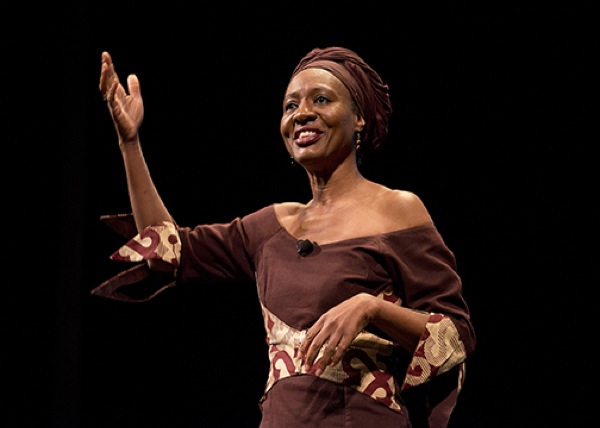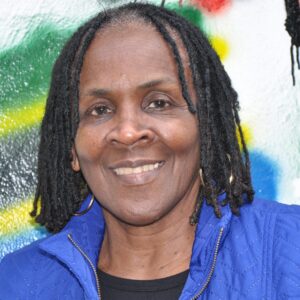About Faya Rose
Faya Ora Rose Toure is a woman of many gifts – playwright, songwriter, poet, activist, and institution builder. In fact, she is the visionary and founder of the Bridge Crossing Jubilee, the National Voting Rights Museum and Institute, the 21st Century Youth Leadership Movement, the Black Lawyers Association, the Slavery and Civil War Museum, the Black Belt Arts and Cultural Center, educational organizations like R. I. S. E. (Reclaiming our Intellect, Spirituality, and Excellence), Mothers of Many, and many other institutions.
She also has been very actively politically advocating for change on a local, state, and national level. Toure’ led a movement to end a new form of segregation called tracking or “ability grouping.” This work put a national spotlight on the unfinished business of the Brown vs. the Topeka Board of Education decision in 1954.
Toure’ also inspired the local Selma community to a victory ending the 40-year reign of Mayor Joe Smitherman (who was mayor in the 1960s) in the year 2000 with the “Joe Gotta Go” Campaign. She worked tirelessly to make institutional change, along with her husband, friends, and community workers in order to help make the dreams of those who marched, prayed, and died a reality.
Protesting injustice is in her blood. Her very first protest was in her home among her loving family. Her mother was a cook at a local restaurant, so her father was left to care for the children, cooking beans for them to eat on a daily basis. He looked up to find her organizing her brothers and sisters making signs that said, “No more beans! No more beans!”
During the era of the Civil Rights Movement, two life events caused Faya Rose to lean more toward Malcolm X and his philosophy than Martin Luther King, Jr. and the Civil Rights Movement. When Faya was young, her family moved to Birmingham, Alabama because her father, Damon Gaines (an inspiration to her out-of-the-box thinking), was called there to the ministry of a local A. M. E. Zion Church. The family had moved to “Dynamite Hill” where hateful white supremacists were bombing the homes of blacks living in the area, turning Birmingham into “Bombingham” in the 1960s. A young man was killed on their street. Faya’s father took a position of self-defense in the face of the murderous racism – believing it to be his constitutional right.
The other experience that inspired Toure’ to a more radical philosophy happened in the north. Faya and her friend (soon to be husband), Senator Henry Sanders, were attending Harvard Law School, where they were active on campus challenging the status quo. They went to a meeting in a church in Detroit to discuss the development of the South as an area where blacks could practice self-determination. Suddenly, the police burst through the doors, arresting everyone present without cause and charging them with conspiracy for murder. The couple knew nothing at all about the charge and experienced great injustices at the hands of the police. They vowed to return to the South to build Black-led institutions to improve life for Black people. Their classmate, Randall Robinson (author of The Debt), said that they were the only people among their class that went home to Alabama to do exactly what they said they would do for their community.
Faya Rose and her family have endured death threats, bomb threats, the spreading of rumors and lies, financial difficulties, betrayals, and all manner of difficulties in service to the Black community. She keeps going because of a resolute commitment to children, Black people, and humanity. She now advocates for the end of suffering through real education that teaches young people the knowledge of their history.
Faya is also class counsel in the historic Black farmers lawsuit, winning over 13 million dollars for Shirley and Charles Sherrod and New Communities, and charged no attorney fees.




